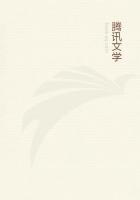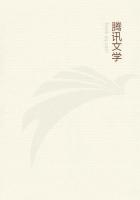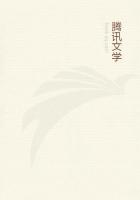I am indebted to a paper, read by the late Sir William Tite at a meeting of the Society of Antiquaries, for the collation of "Books of Hours," but there are many kinds of MSS. besides these, and it is well to know something of them. The Horae, or Books of Hours, were the latest development of the service-books used at an earlier period. They cannot, in fact, be strictly called service-books, being intended only for private devotion. But in the thirteenth century and before it, Psalters were in use for this purpose, and the collation of a Psalter is in truth more important than that of a Book of Hours. It will be well for a student, therefore, to begin with Psalters, as he can then get up the Hours in their elementary form. I subjoin a bibliographical account of both kinds of MSS. In the famous Exhibition at the Burlington Club in 1874, a number of volumes was arranged to show how persistent one type of the age could be. The form of the decorations, and the arrangement of the figures in borders, once invented, was fixed for generations. In a Psalter of the thirteenth century there was, under the month of January in the calendar, a picture of a grotesque little figure warming himself at a stove. The hearth below, the chimney-pot above, on which a stork was feeding her brood, with the intermediate chimney shaft used as a border, looked like a scientific preparation from the interior anatomy of a house of the period. In one of the latest of the MSS. exhibited on that occasion was the self-same design again. The little man was no longer a grotesque, and the picture had all the high finish and completeness in drawing that we might expect in the workmanship of a contemporary of Van Eyck.
There was a full series of intermediate books, showing the gradual growth of the picture.
With regard to chronology, it may be roughly asserted that the earliest books which occur are Psalters of the thirteenth century.
Next to them come Bibles, of which an enormous issue took place before the middle of the fourteenth century. These are followed by an endless series of books of Hours, which, as the sixteenth century is reached, appear in several vernacular languages. Those in English, being both very rare and of great importance in liturgical history, are of a value altogether out of proportion to the beauty of their illuminations. Side by side with this succession are the Evangelistina, which, like the example mentioned above, are of the highest merit, beauty, and value; followed by sermons and homilies, and the Breviary, which itself shows signs of growth as the years go on. The real Missal, with which all illuminated books used to be confounded, is of rare occurrence, but I have given a collation of it also. Besides these devotional or religious books, I must mention chronicles and romances, and the semi-religious and moral allegories, such as the "Pelerinage de l'Ame," which is said to have given Bunyan the machinery of the "Pilgrim's Progress." Chaucer's and Gower's poetry exists in many MSS., as does the "Polychronicon"of Higden; but, as a rule, the mediaeval chronicles are of single origin, and were not copied. To collate MSS. of these kinds is quite impossible, unless by carefully reading them, and seeing that the pages run on without break.
I should advise the young collector who wishes to make sure of success not to be too catholic in his tastes at first, but to confine his attention to a single period and a single school. Ishould also advise him to make from time to time a careful catalogue of what he buys, and to preserve it even after he has weeded out certain items. He will then be able to make a clear comparative estimate of the importance and value of his collection, and by studying one species at a time, to become thoroughly conversant with what it can teach him. When he has, so to speak, burnt his fingers once or twice, he will find himself able to distinguish at sight what no amount of teaching by word of mouth or by writing could ever possibly impart to any advantage.
One thing I should like if possible to impress very strongly upon the reader. That is the fact that a MS. which is not absolutely perfect, if it is in a genuine state, is of much more value than one which has been made perfect by the skill of a modern restorer. The more skilful he is, that is to say the better he can forge the style of the original, the more worthless he renders the volume.
Printing seems to have superseded the art of the illuminator more promptly and completely in England than on the Continent. The dames galantes of Brantome's memoirs took pleasure in illuminated Books of Hours, suited to the nature of their devotions. As late as the time of Louis XIV., Bussy Rabutin had a volume of the same kind, illuminated with portraits of "saints," of his own canonisation.
The most famous of these modern examples of costly MSS. was "La Guirlande de Julie," a collection of madrigals by various courtly hands, presented to the illustrious Julie, daughter of the Marquise de Rambouillet, most distinguished of the Precieuses, and wife of the Duc de Montausier, the supposed original of Moliere's Alceste.
The MS. was copied on vellum by Nicholas Jarry, the great calligraph of his time. The flowers on the margin were painted by Robert. Not long ago a French ******* was so lucky as to discover the MS. book of prayers of Julie's noble mother, the Marquise de Rambouillet.
The Marquise wrote these prayers for her own devotions, and Jarry, the illuminator, declared that he found them most edifying, and delightful to study. The manu is written on vellum by the famous Jarry, contains a portrait of the fair Julie herself, and is bound in morocco by Le Gascon. The happy collector who possesses the volume now, heard vaguely that a manu of some interest was being exposed for sale at a trifling price in the shop of a country bookseller. The deion of the book, casual as it was, made mention of the monogram on the cover. This was enough for the *******. He rushed to a railway station, travelled some three hundred miles, reached the country town, hastened to the bookseller's shop, and found that the book had been withdrawn by its owner. Happily the possessor, unconscious of his bliss, was at home. The ******* sought him out, paid the small sum demanded, and returned to Paris in triumph. Thus, even in the region of manu-collecting, there are extraordinary prizes for the intelligent collector.













